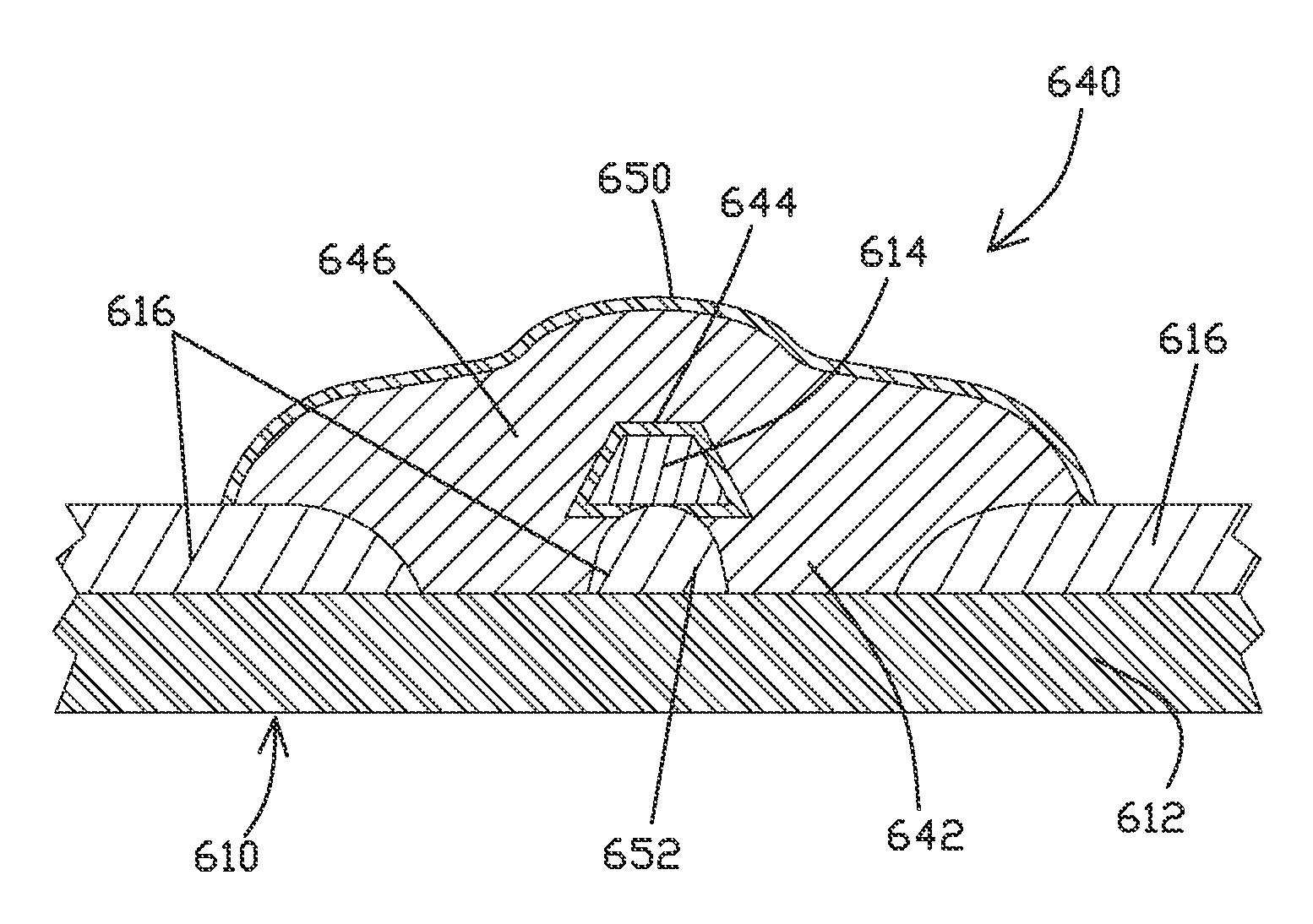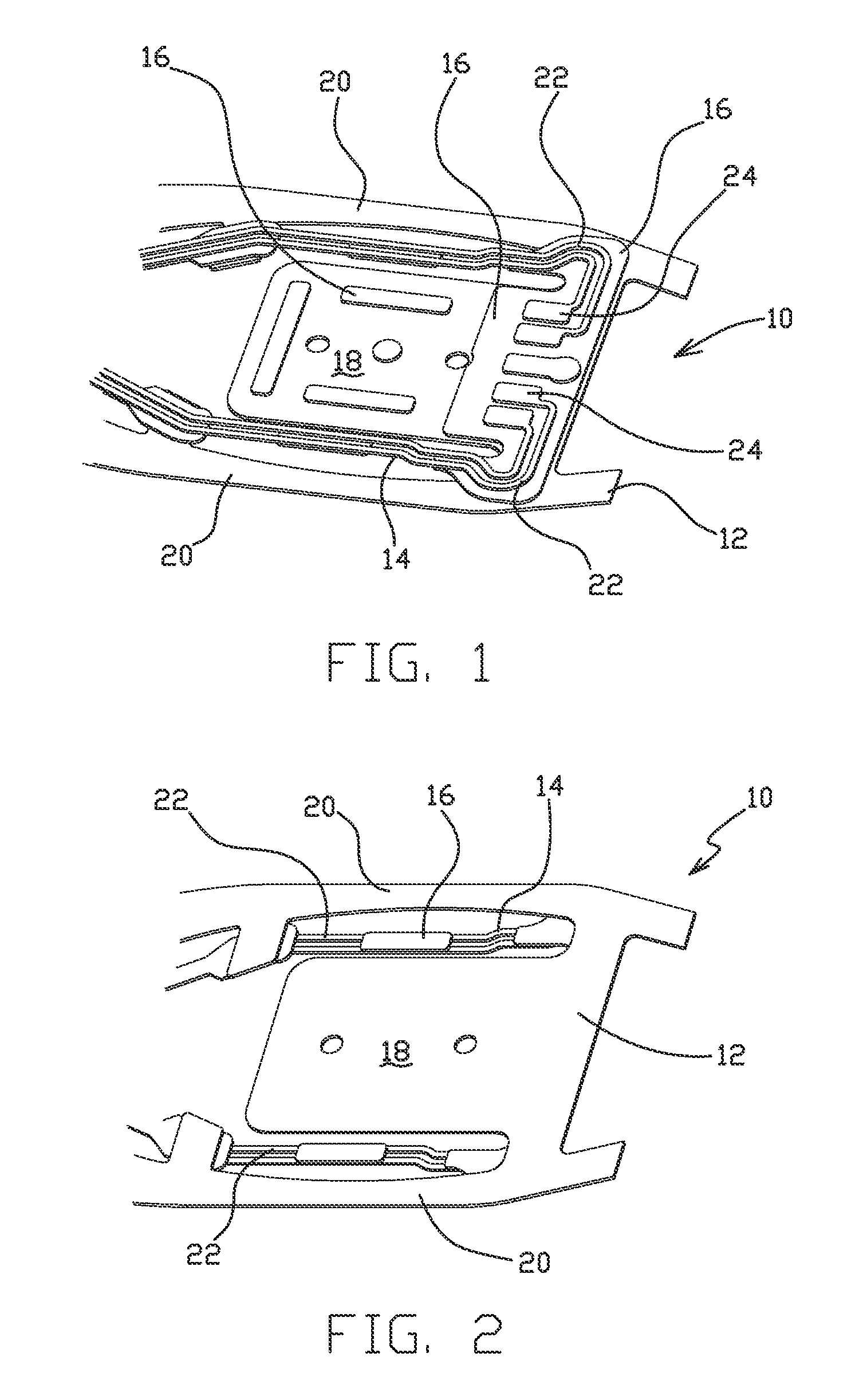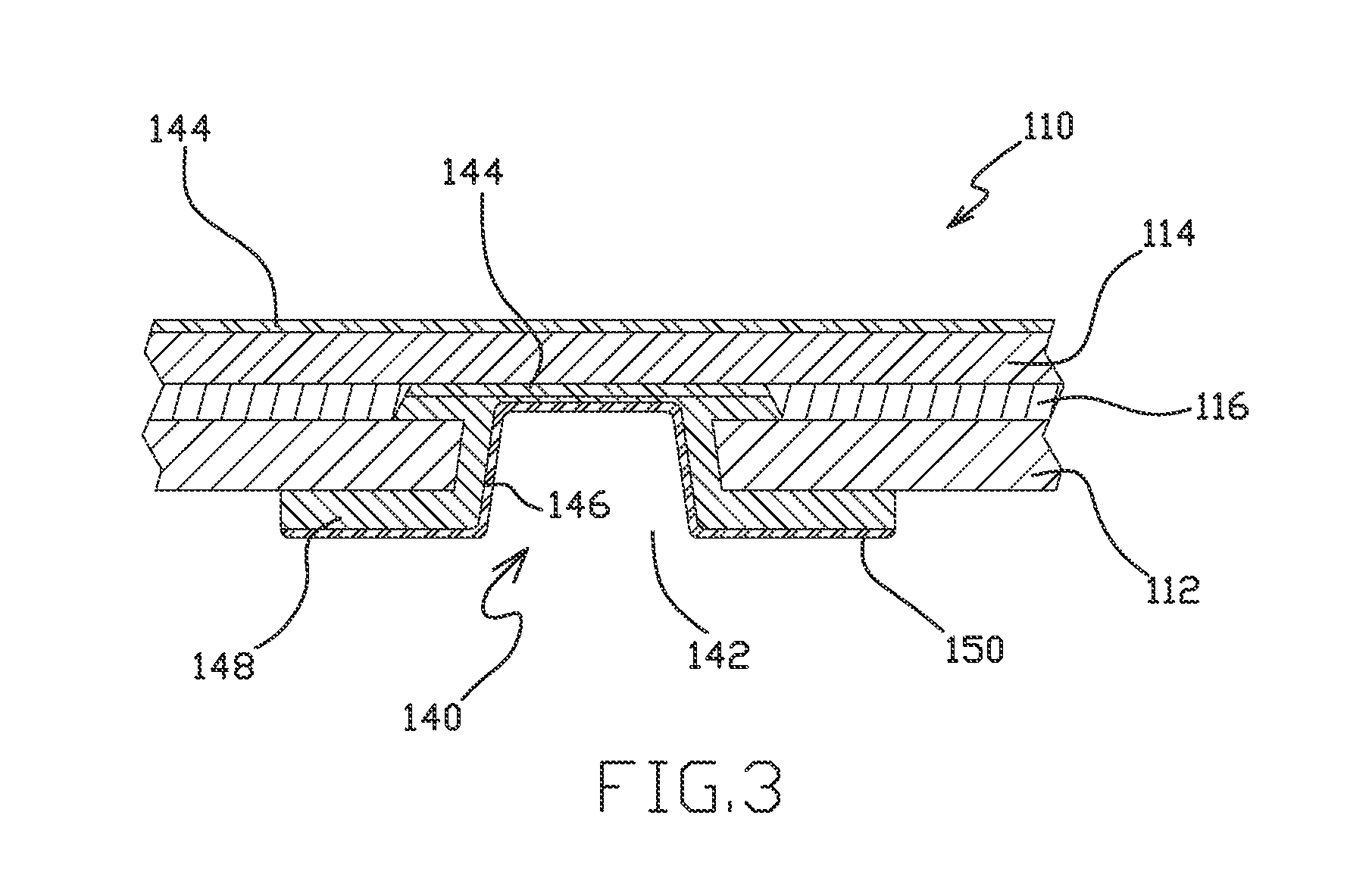Plated ground features for integrated lead suspensions
- Summary
- Abstract
- Description
- Claims
- Application Information
AI Technical Summary
Benefits of technology
Problems solved by technology
Method used
Image
Examples
first embodiment
[0029]FIGS. 3, 4 and 5 are illustrations of an interconnect 140 in accordance with the present invention formed on the side of the spring metal layer 112 of flexure 110 (i.e., a “stainless steel side” interconnect). With the exception of interconnect 140, flexure 110 can be identical to flexure 10 described above, and similar reference numerals are used to identify corresponding features. As shown, the interconnect 140 is formed in an aperture 142 through the spring metal layer 112 and the insulator layer 116. The portion of aperture 142 extending through the insulator layer 116 is larger in diameter than the portion of the aperture extending through the spring metal layer 112 in the illustrated embodiment, but can be larger or smaller than the portion of the aperture through the spring metal layer in other embodiments. In the embodiment shown in FIG. 3, the surface of the conductor layer 114 exposed by the aperture 142 is plated with a relatively non-corrosive conductive material s...
second embodiment
[0030]FIGS. 6, 7 and 8 are illustrations of an interconnect 240 in accordance with the present invention formed on the side of the conductor layer 214 of flexure 210 (i.e., a “copper side” interconnect). With the exception of interconnect 240, flexure 210 can be identical to flexure 10 described above, and similar reference numerals are used to identify corresponding features. As shown, the interconnect 240 is formed in an aperture 242 through the conductor layer 214 and the insulator layer 216. The portion of aperture 242 extending through the insulator layer 216 is larger in diameter than the portion of the aperture extending through the conductor layer 214 in the illustrated embodiment, but can be larger or smaller than the portion of the aperture through the conductor layer in other embodiments. In the embodiment shown in FIG. 6, the surface of the conductor layer 214 exposed by the aperture 242, as well as other exposed surfaces of the conductor layer, are plated with a relativ...
third embodiment
[0032]FIGS. 11-13 are illustrations of a bond pad interconnect 440 in accordance with the present invention formed on the side of the conductor layer 414 of flexure 410. With the exception of interconnect 440, flexure 410 can be identical to flexure 310 described above, and similar reference numerals are used to identify corresponding features. As shown, the bond pad interconnect 440 is formed in a gap or aperture 442 extending through the insulator layer 416 at the location of interconnect 440. An electroplated nickel or other conductive material interconnect plating 446 is built up or plated up over the spring metal layer 412 in the area of the aperture 442 corresponding to the desired location of the bond pad interconnect 440. As perhaps best shown in FIG. 11, the plating 446 of bond pad interconnect 440 is preferably built up to a height that is generally the same as the height of the other bond pads 424 on the flexure 410. The interconnect 440 is shaped to the desired size. As ...
PUM
 Login to View More
Login to View More Abstract
Description
Claims
Application Information
 Login to View More
Login to View More - R&D
- Intellectual Property
- Life Sciences
- Materials
- Tech Scout
- Unparalleled Data Quality
- Higher Quality Content
- 60% Fewer Hallucinations
Browse by: Latest US Patents, China's latest patents, Technical Efficacy Thesaurus, Application Domain, Technology Topic, Popular Technical Reports.
© 2025 PatSnap. All rights reserved.Legal|Privacy policy|Modern Slavery Act Transparency Statement|Sitemap|About US| Contact US: help@patsnap.com



